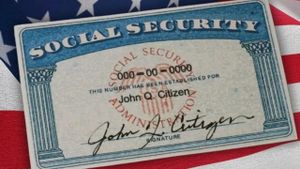Lidl's recent launch of 'Dubai Chocolate' has ignited significant demand among consumers, sparking long lines outside select stores. The discount retailer is offering 500 bars of this chocolate at 3.29 euros each at 20 selected locations, exclusively for users of the Lidl app. Advertised as the "super trend at super prices," the promotion has turned out to be quite the spectacle, drawing customers eagerly waiting outside stores before dawn.
On one notable occasion, shoppers began lining up outside a Lidl store in Berlin's Marienfelde at around 2 AM, with the excitement peaking before the official opening at 7 AM, when around 200 customers were ready to rush inside. This frenzy was not just for the chocolate; three lucky customers stood to win trips to Dubai worth 3,000 euros each, along with 500 chocolate bars wrapped as gifts, one of which unexpectedly contained the coveted Dubai Chocolate alongside Lidl gift vouchers worth 250 euros.
Reflecting on the event, Lidl expressed on Instagram: "How crazy was this? A massive queue at our Lidl because of Dubai Chocolate. Or was it perhaps because of the three trips?" The retailer later reassured disappointed customers with plans to make the Dubai Chocolate available to everyone soon.
While the promotional spectacle has generated excitement and amusement among many, it has also raised eyebrows. Social media reactions have varied, with some praising Lidl's marketing strategy, yet many others expressed concern over the crowd's frenzy, even questioning societal trends. Comments ranged from: "Apparently good marketing," to critiques like, "Oh no, how stupid is this?" and "Germany becomes more absurd every day." These reactions underline the divide between excitement for the product and concerns about consumer behavior driven by marketing tactics.
Meanwhile, the Dubai Chocolate has sparked legal disputes. Andreas Wilmers, the importer of another brand, 'Fex Dessert,' has called for Lidl and Aldi to cease using the term 'Dubai Chocolate,' claiming it misleads consumers about the product's origins. Wilmers pointed out, "This designation is completely misleading, as the chocolate is neither handmade nor produced in Dubai," criticizing the use of Dubai's skyline and landmarks on the packaging, which, according to him, creates the impression among consumers of authentic Dubai origins.
Wilmers had previously approached Lindt over similar branding issues, which responded by renaming its product to 'Dubai Style Chocolade.' Lidl, along with Aldi and several other companies, now faces scrutiny and demands for compliance with the food information regulation. Wilmers has filed complaints with relevant oversight authorities, arguing the product labeling creates false expectations about the product's quality and origin.
The situation highlights the challenges retailers face when responding to consumer interests and defining their brands responsibly. With promotional stunts like the one seen recently at Lidl, the line between effective marketing and misleading advertising becomes critically thin.
Consumer behavior, alongside each company's efforts to capitalize on trends like Dubai Chocolate, continues to push boundaries. Will this incredible demand for Dubai Chocolate change how retailers communicate their product backgrounds? Time will tell if Lidl's marketing approach will reshape public perception or if the legal challenges around product naming conventions will take precedence.



